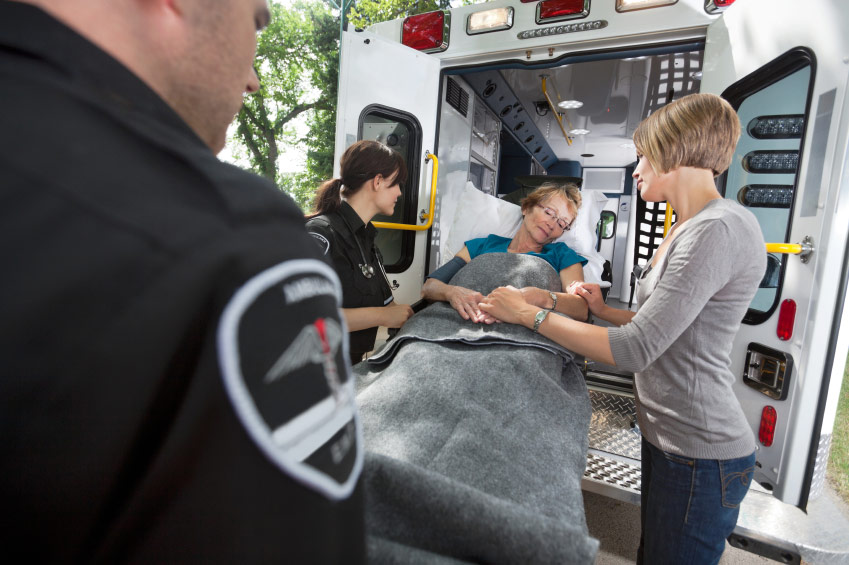Life requires planning. We plan for our weddings, when to start a family and our retirement. We also buy car insurance, life insurance and prepare a will, but too often we don’t consider pre-planning our funeral.
I understand that thinking about death is a very uneasy and avoidable topic. No one wants to talk about the end of their lives, and thus, in most cases, these choices are left up to the adult children who are left behind. For the adult children, making funeral arrangements after your death has occurred is very stressful, and some religions such as Judaism dictate that burial take place as soon as possible after death occurs. Coupled with the urgency of notifying friends and family, the burden of arranging a funeral can seem overwhelming. That’s why pre-need planning for funeral services can help guide you through those decisions when you are thinking clearly about what you want, and your family can be assured your wishes have been met. We don’t know when the unthinkable will happen. Being prepared is smart.
There is another very practical reason for doing so. Cost. There are numerous statistics that state that the cost of funerals doubles every 3-5 years. Your burial or cremation, if paid for in advance is locked in and your family will not have to bear the financial burden of paying for a funeral or service that you paid for in advance.
Finally, making pre-arrangements avoids your family members from overspending. The funeral industry calls it “grief-spending.” You may not wish to have expensive additions if you choose to be buried. Maybe you wish to be cremated, but your family members may feel like they need to bury you and spend more than necessary. Take the time to communicate to your family members what your personal desires are for the end of your life.
Why should I consider pre-arrangement for myself or a family member?
With pre-need planning, also called pre-arrangement, you can choose everything in advance, the casket, the service, the location and the way in which the entire day is handled. You can also choose to simply pre-pay a simple cremation and have all paperwork in place in advance.
Many people plan ahead because there is no one else available to make responsible decisions. Others do it for peace of mind, knowing they’ve made their wishes known, thus easing the burden for their families. The sense of uncertainty is greatly reduced when arrangements are made early, with far less emotional turmoil. Pre-arrangement can also save you money. By pre-funding your arrangements now, you can lock in those funeral costs at today’s prices, sparing your loved ones the added cost of inflation later on.
What happens to the money for the funeral I have pre-arranged?
When families prepay through a burial trust, any amount can be deposited into a trust held by a federally insured bank. The named recipient is the funeral home. Interest that accrues is used to offset any increase in cost due to future inflation; guaranteeing that there will be no increase in your costs of the pre-arranged funeral.
Will there be any additional charges at the time of the funeral?
The only charges you may incur from your funeral home would be if your heirs request additional services or merchandise not previously agreed upon in your pre-arrangement.
Look at your life circumstances to see if pre-planning funeral arrangements may be the right choice for you and your loved ones.
HOW TO CONSIDER A BURIAL PLOT
Buying a burial plot, typically located in a cemetery, can be part of your pre-planning choice to lessen the impact of financial hardships for you and your family. Many people choose to have the funeral home handle the arrangements, but some people choose to make it a more personal experience.
Things to consider when evaluating and selecting the best plot for you or a loved one:
- Does the plot meet the requirements of my religion?
- What restrictions are placed on burial vaults?
- Does the price include perpetual care and maintenance?
- Are other plots available in the same location to provide for burial of my entire family?
- Do I want ground burial or mausoleum burial, and are both available?
- Many cemeteries have restrictions on monuments and memorials, including the placement of flowers and remembrance items. Your funeral home director can work with you to comply with these restrictions in conjunction with your personal preferences.
Other things to keep in mind:
- Size and price of plots can vary and plots with a “view” can cost more. Also, some cemeteries have restrictions on what can be engraved on headstones.
- To purchase a plot at a smaller or more exclusive cemetery, you may need to plan ahead sooner than later.
- If certain family members want to be buried together you’ll save money by purchasing multiple plots at the same time with the same cemetery.
- Many people view the selection of a final resting place as an important personal decision. Whether you’re considering purchasing your own burial plot or for a loved one already passed on, you’ll find it easier if you have the basic knowledge to help you make the choice right for you.
THE ROLE OF A FUNERAL DIRECTOR
Funeral directors have a challenging role within the community. They are administrators and caregivers. They must deal with mortality every day and the emotions of their clients, while also having a respect for tradition and ceremony and having a compassionate nature.
When the death of a loved one occurs, there are a number of things that require attention simultaneously. The funeral director’s main role is to assist you with all the details of the funeral process. Among the many services funeral directors may provide are:
- Remove the deceased from the place of death
- Obtain information needed to complete legal documents such as death certificates and burial permits
- Care and custody of the body
- Coordinate all details with the clergy
- Offer counsel and comfort to bereaved families and friends
- Place obituary and funeral notices in newspapers
- Inform survivors of benefits for which they may be eligible
- Assist in arranging for burial or cremation
- Arrange for pallbearers and let them know what their duties are
- Assist in arrangements for cemetery space, grave opening and closing, flowers and monuments
- Arrange transportation for you and the members of your family prior to, during, and after the funeral
- Supervise the funeral or memorial service, including receiving and ushering people to their seats
- Direct preparations and shipment of remains for out-of-state burial.
The funeral director’s most important role is helping you and your family. A good funeral director will help guide you in all these areas while also helping transition you and your family between life and death, and making the experience of losing a loved one easier to bear.
Making any kind of funeral arrangement involves many choices and decisions. Funeral service professionals give you and your family the information you need to make the right choices and can help you create meaningful memories.
CREATING A MEANINGFUL FUNERAL
Throughout history funerals have been a means of expressing our beliefs, thoughts and feelings about the death of someone we love.
A funeral service fills several important needs when we lose a loved one. It provides for the final care of a person and allows us to create a special tribute to their life. It’s also a way to grieve together as a family and community as we acknowledge the death of our loved one and remember them. And facing the reality of death is an important first step in the grief process, along with having the support and consolation of friends and relatives.
A funeral is a time for not only you to express your love and respect for a loved one gone, but a time to see how much others care as well.
Specifically, a funeral ceremony:
- Helps us acknowledge that a loved one has died.
- Provides us with a physical and public event for us to say goodbye.
- Provides us with a support system for us through friends, relatives and our community.
- Provides us with a time of reflection on the meaning of life and death.
- Offers us hope to carry on with our own lives.
Coordinating a funeral is a time to capture and remember the spirit of your loved one. Brainstorming with family and friends on how to best honor them, as well as talking with the funeral director, can help you with personalizing this service.
To get you started, here are some suggestions that may help you personalize your loved one’s funeral:
- Passions or hobbies of the deceased
- Memories to share
- Important people to include
- Person to lead the ceremony
- Others who might want to speak or share memories
- Music ideas for the visitation and ceremony
- Readings for the ceremony
Each funeral service is as unique as the person it honors. Creating a meaningful service will help you, and those in attendance, say goodbye to a loved one in a special way that will live on in memory forever.
FUNERAL BENEFITS FOR VETERANS
If you or a loved one are a Veteran of the United States military, you may be eligible for special allowances as the Veterans Administration offers burial benefits to those who are honorably discharged. For more information on how much you, or your loved one, could be eligible for in VA burial benefits, visit www.va.gov.












